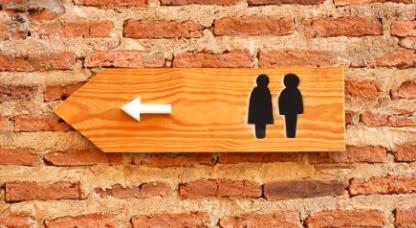Nocturia is the need to wake up during the night to empty your bladder. It can be common in multiple sclerosis, particularly if you need to use the toilet often during the day (urinary frequency) or if you have difficulty emptying your bladder completely. There are also a number of other possible causes, so it is important that you get nocturia investigated if it something you experience.
The sleep disturbance that nocturia causes can lead to tiredness during the day and contribute to MS fatigue. As such, nocturia can have a significant effect on quality of life.
Nocturia is the need to get up at night to pass urine. It is normal to get up once a night, but getting up twice or more may cause daytime tiredness. People with severe nocturia may get up five or six times during the night.
In MS you are more likely to experience nocturia if you usually need to use the toilet often during the day (urinary frequency) or if you have difficulty emptying your bladder. Urinary tract infections can also increase the need to urinate, including at night. As with the general population, drinking caffeinated drinks or alcohol before bedtime and other poor sleep patterns can result in nocturia.
Nocturia can also be caused by health problems such as diabetes, so do get it checked out by health professionals.
Studies have shown that needing the toilet at night is common in MS and affects around seven out of ten people with MS. Despite being a frequent issue, nocturia is often under-treated. Some people with MS may put up with sleep disruption and fatigue when nocturia can be treated.
Treatments for nocturia also include treatment for bladder frequency as reducing the general need to urinate throughout the day can help to reduce the need to get up in the night to urinate.
Drug treatments include antimuscarinic medications, which can reduce the feeling of urgency, and cut down the night time visits to the bathroom. A medication called desmopressin may also be used to treat nocturia. This acts by reducing the amount of urine produced by the kidneys for six to eight hours. It is not available for people who are over 65, diabetic or on blood pressure medication.
Physiotherapy is a possible treatment for nocturia and bladder frequency, particularly where it results in bladder incontinence. The aim is to increase the muscle tone of the pelvic floor with exercises.
Botox (Botulism toxin) can be used to reduce the activity of the bladder muscles. This can be very effective, but wears off after a few months, so may need to be repeated.
Nerve stimulation - stimulating the tibial nerve in the leg can in some cases interfere with the nerve signals going to the bladder. This can reduce the need to urinate.
A study of sativex on urinary problems in MS found small, but not statistically significant, improvements in nocturia.
There is a study of the effects of melatonin on nocturia in MS currently under way.

